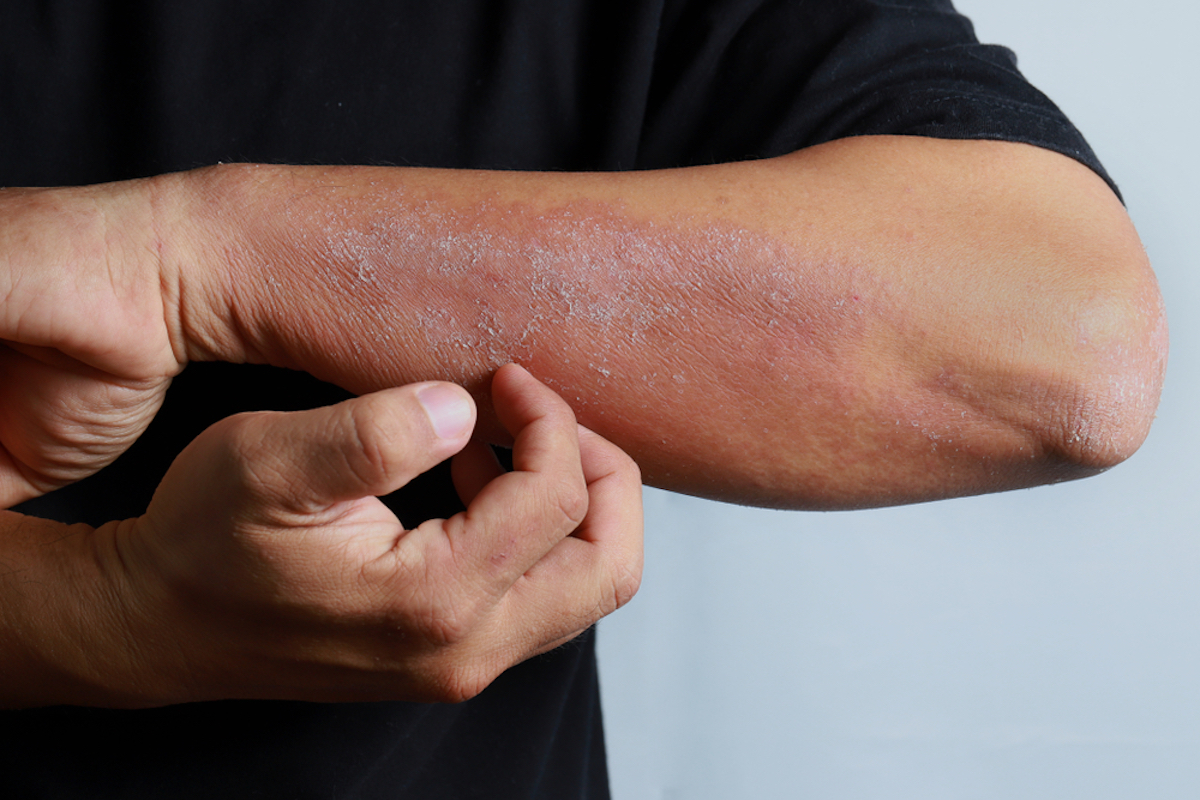About 10% of Americans suffer from some sort of eczema, making this a very common skin disorder that troubles many people. No matter your age, gender, social status, or race; about 1 in 10 Americans can develop this during their life, most likely in their early childhood. This doesn’t mean you cannot get eczema if you’re a young adult, adult, or senior. We understand you might be a bit overwhelmed as there are many skin disorders. That’s why it’s important to understand when itchy skin is “just” some form of eczema or something worse.

What is Eczema?
First, it’s important to know what this medical skin problem is. Eczema is an umbrella term used for multiple non-contagious skin conditions that cause the same symptoms. The two most common types are atopic dermatitis and contact dermatitis. Atopic dermatitis means that your skin is reacting to an overactive immune system or genetic changes. Contact dermatitis means that your skin reacts to having been in contact with a substance that the body – or skin – cannot tolerate. Other types are:
- Neurodermatits
- Dyshidrotic eczema
- Nummular eczema
- Seborrheic dermatitis
- Stasis dermatitis
Causes of Eczema
You can suffer from multiple types of eczema at the same time, as the types have their causes, symptoms, and their locations on the body. There are several reasons to suffer from eczema, but research has shown that the following things trigger it the most:
- Genetics; a genetic mutation that causes a filaggrin deficiency, which causes your skin to become dry and sometimes infected.
- Environment; things like dust mites, pet dander, air pollution, and foods.
- Stress; produces the hormone cortisol, which suppresses the immune system and increases inflammation in the body – and skin.
- Allergies; think of environmental or food allergies.
- Coarse wool and synthetic fibers; may contain chemicals or materials that the body – or skin – cannot tolerate.
- Infections; contains an antibody that can worsen it.
- Chlorine; high levels of chlorine or other disinfecting chemicals may cause your skin to react.
- Make-up & perfume; contains chemicals that the skin – even after using for months – can’t tolerate.
- Soap & detergents; may contain products that the skin can’t tolerate.
- Climate; dry climates, extremely humid weather, and abrupt weather changes may trigger symptoms
Each type of eczema reacts differently, meaning that one type reacts to environmental factors, while another might react to a particular product you use or consume. In addition, you don’t have to react to all the triggers and causes listed above. Continue reading on the next page and discover how to recognize eczema.

